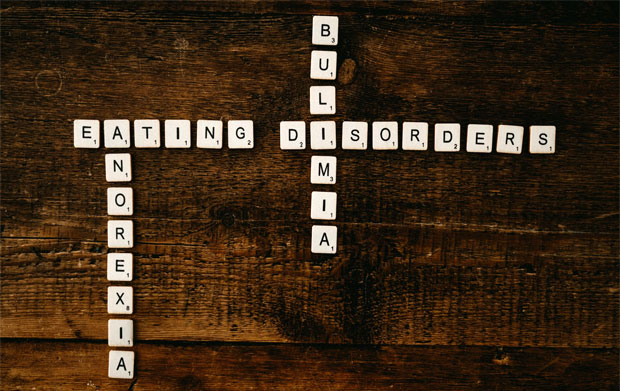Rebuilding a Healthy Relationship with Food: Coping Strategies for Eating Disorders

Rebuilding a Healthy Relationship with Food: Coping Strategies for Eating Disorders
Embarking on a journey to rebuild a healthy relationship with food, especially while overcoming an eating disorder, can feel like navigating through a maze with no clear map. It’s challenging, often overwhelming, but incredibly rewarding when you find your way. This blog is here to be a bit of a guiding light, offering practical tips and resources to help you along the way. We’ll delve into the emotional and psychological aspects and arm you with strategies to cultivate a sense of calm and balance in your relationship with food. Further, we will discuss how visiting a private rehab centre can help you start your journey to healthy eating again.
- Understanding Eating Disorders
Grasping the true nature of eating disorders is the first step in overcoming them. These disorders, including anorexia, bulimia, and binge eating disorder, are often about much more than food or weight. They can stem from a need for control, emotional distress, or deep-rooted self-esteem issues. It’s essential to recognize that these disorders are multifaceted, and tackling them involves addressing both the physical and emotional aspects.

- The Emotional Rollercoaster
Living with an eating disorder can be like riding an emotional rollercoaster – full of highs and lows, twists and turns. One moment you might feel in control, and the next, utterly overwhelmed. Understanding the emotional underpinnings of your eating disorder is crucial. It’s about recognizing how emotions like anxiety, sadness, or even happiness influence your eating patterns and learning strategies to manage these feelings without relying on disordered eating behaviours.
- Developing a Support Network
Navigating through recovery without a solid support network can be tough. This network could include close friends, family members who understand your struggle, healthcare professionals, or support groups. Don’t hesitate to lean on these people for support. Opening up about your challenges and victories can make the journey less lonely and more manageable.
- Professional Help: Therapy and Counselling
Seeking professional help can be a game-changer in your recovery journey. Therapists and counsellors specialising in eating disorders can offer you the tools and support you need. They work with you to identify the root causes of your disorder, develop coping strategies, and provide a safe space to explore and understand your thoughts and feelings related to food and body image.

- Mindful Eating: Tuning into Your Body
Mindful eating is all about forming a deeper connection with the eating experience. It involves paying close attention to the taste, texture, and sensations of your food, as well as your body’s hunger and fullness cues. This practice encourages you to eat in response to physical hunger rather than emotional triggers, helping to break the cycle of mindless eating and fostering a healthier relationship with food.
- Re-learning Healthy Eating Patterns
For many dealing with eating disorders, healthy eating patterns might feel like foreign territory. This journey involves understanding and respecting your body’s nutritional needs, establishing regular eating routines, and learning to enjoy a variety of foods without guilt or fear. It’s about nurturing your body, not punishing it, and this shift in perspective can be incredibly empowering.
- Managing Triggers
Triggers for disordered eating can be everywhere – from stressful situations to certain social settings. Identifying your personal triggers is a significant step. Once you know what sets off your disordered eating, you can develop specific strategies to cope with these triggers, whether it’s through relaxation techniques, distraction methods, or seeking support from your network.
- Cultivating a Positive Body Image
Many with eating disorders struggle with a negative body image. Part of recovery is learning to accept and respect your body, regardless of its shape or size. This process can involve challenging negative thoughts about your body, engaging in activities that make you feel good about yourself, and focusing on your body’s capabilities rather than its appearance.

- Self-Care Strategies
Self-care is an essential component of recovery. It encompasses various practices that help maintain your mental, emotional, and physical health. This might include activities like yoga, meditation, engaging in hobbies you love, or simply ensuring you get enough rest. Self-care is about doing things that nourish and rejuvenate you, both inside and out.
- Celebrating Small Victories
In the journey of recovery, every small step counts. Celebrate your progress, no matter how minor it may seem. Whether it’s trying a new food, enjoying a meal with friends, or successfully managing a trigger, acknowledging these victories can boost your confidence and motivate you to keep going.
- Staying Patient and Persistent
Recovery is rarely a straight path; it’s normal to have setbacks. What’s important is to stay patient with yourself and persist in your efforts. Understand that healing takes time and that it’s okay to have days when things don’t go as planned. The key is to keep moving forward, even if it’s just one small step at a time.

- Incorporating Exercise in a Healthy Way
Physical activity can be a positive part of recovery if approached in the right way. The focus should be on how exercise makes you feel rather than on burning calories or changing your body. Opt for activities that you enjoy and that make you feel good, such as dancing, hiking, or team sports. It’s about celebrating what your body can do, rather than how it looks.
- Creating a Positive Environment
Your environment can have a significant impact on your recovery. Surround yourself with positivity – this might mean setting boundaries with people who don’t support your recovery or creating a home environment that makes you feel safe and comfortable. Engage with media and social networks that promote body positivity and self-acceptance.
- The Role of Nutrition Education
Educating yourself about nutrition can demystify a lot of fears and misconceptions about food. Understanding how different foods nourish your body can help you make informed, healthful choices. However, it’s important to approach this education with a balanced perspective and avoid getting caught up in the minutiae of diets or food rules.
- Avoiding Fad Diets and Quick Fixes
In our diet-obsessed culture, it’s easy to get lured by the promise of quick fixes and fad diets. However, these can be particularly harmful for those in recovery from eating disorders. Focus on building a sustainable, balanced approach to eating, one that nurtures your body and your relationship with food.

- Building a Balanced Relationship with Food
Ultimately, the goal is to develop a balanced and peaceful relationship with food – one where eating is a source of nourishment and pleasure, not stress or guilt. It’s about listening to your body, enjoying food, and seeing it as just one part of a fulfilling life.
- Navigating Social Situations
Social situations involving food can be challenging. It’s helpful to plan ahead for these scenarios – think about what you might eat, how you’ll handle comments about food or your body, and who in the group can offer you support if needed. Remember, it’s okay to set boundaries and to prioritise your recovery in these situations.
Conclusion
Rebuilding a healthy relationship with food while coping with an eating disorder is no small feat. It takes courage, effort, and persistence. But with the right strategies and support, it is absolutely achievable. Celebrate your journey, be kind to yourself, and remember that each day is a new opportunity to take another step towards a healthier, happier you.
Guest Article.




